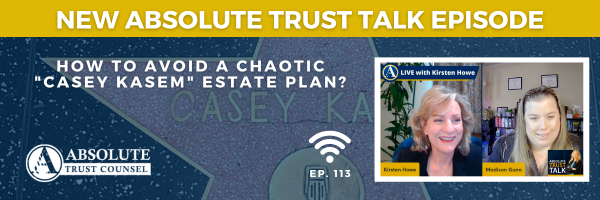Lisa walked out of nursing home and shook her head.
“I really wish we had the ability to care for Mom at home,” she said. “She really doesn’t need to be in a nursing home. She doesn’t need that level of care. All she really needs is someone to check in on her regularly to make sure she’s safe and maybe some help with cooking, cleaning, and laundry.”
Her husband, James, nodded. “I know. I wish we could have afforded one of those assisted living facilities. That would have been perfect for her. She could have retained some independence and enjoyed her life more.”
Lisa sighed. “They try. I know they do. But Mom needs her own space. She needs to be able to do what she wants when she wants to do it.”
James chuckled. “Living in a nursing home is not unlike being in the military. All those rules and regulations. Always somebody telling you what to do.”
“And what not to do.” Lisa frowned. “That has got to be hard for someone like Mom. It’s not like she needs that much oversight. She really just needs someone to check in on her. Heck, in the nursing home they have her in bed by 8 a.m. and lights out shortly thereafter. She can’t even watch her late-night talk shows and you know she loves those.”
James patted her arm. “I know she’s unhappy there. But without the funds, what’s the alternative?”
Medi-Cal eligible seniors and disabled individuals can now opt to reside in qualified residential care facilities instead of nursing homes.
Previously, residency in assisted living facilities was not funded by Medi-Cal. That forced those with any care needs into the nursing home system, even though they did not require a high level of skilled nursing care. The result has been a shortage of beds for patients who require more intensive care.

The Assisted Living Waiver (ALW) is designed to provide current residents of nursing care facilities or adults at risk of being institutionalized in a nursing home with community-based alternatives. Essentially, the ALW authorizes Medi-Cal to fund stays in assisted living facilities for qualified individuals. The facilities must provide the required level of care and fall under the following categories:
- A Residential Care Facility for the Elderly (RCFE)
- An Adult Residential Care Facility (ARF), or
- Public subsidized housing that utilizes ALW services.
The ALW program is available only to qualified individuals who reside in the following counties: Alameda, Contra Costa, Fresno, Kern, Los Angeles, Orange, Riverside, Sacramento, San Bernardino, San Diego, San Francisco, San Joaquin, San Mateo, Santa Clara, and Sonoma. In addition, program participants must meet all of the following criteria:
- Must be 21 or older.
- Must have full-scope Medi-Cal eligibility with zero share of cost.
- Must have care needs equal to those of Medi-Cal-funded residents living and receiving care in nursing facilities.
- Must be willing to live in an assisted living setting instead of a nursing facility, and,
- Must be able to reside safely in an assisted living facility or public subsidized housing.
Those interested in participating in the ALW program must apply to a designated Care Coordination Agency (CCA). Qualifying agencies are listed on the California Department of Health Care Services website at https://www.dhcs.ca.gov/services/ltc/Documents/Care-Coordination-Agencies-2019.pdf.
The CCA will determine eligibility for the ALW program. A pre-screening assessment is done by phone and then an in-person assessment is conducted by a registered nurse. If an applicant successfully completes the screening process, they are assigned a care coordinator. The coordinator is responsible for analyzing eligibility, developing individualized service plans, arranging for services, and monitoring service delivery on a monthly basis.
Participation in ALW programs is limited and there is a waitlist. However, open slots are released on a regular basis and made available on a first come, first serve basis. That means even if there are no openings, it is important to get on the waitlist as soon as possible.
Because this program is relatively new in California, it is subject to continual adjustments and updates. For example, the state recently added 2,000 more slots to the program, and also specified that 60 percent of new enrollees must transition from qualified institutional stays. In addition, more flexibility was inserted into permissible accommodations, performance measures were updated, and health and safety monitoring procedures were enhanced.
For more information on the Assisted Living Waiver, please visit https://www.dhcs.ca.gov/services/ltc/Pages/AssistedLivingWaiver.aspx.
[Ad] Do you need help with your California estate planning now? We can help. Together our Absolute Trust Counsel team will take a look at your situation and your specific needs to develop a strategic plan to help protect you and your loved ones. Here’s a link to schedule your free discovery today > https://absolutetrustcounsel.com/scheduling/.
Looking for more information on probate? Visit our probate resource page at https://absolutetrustcounsel.com/practice-areas/probate/ for guidebooks, podcasts, videos, and more!

